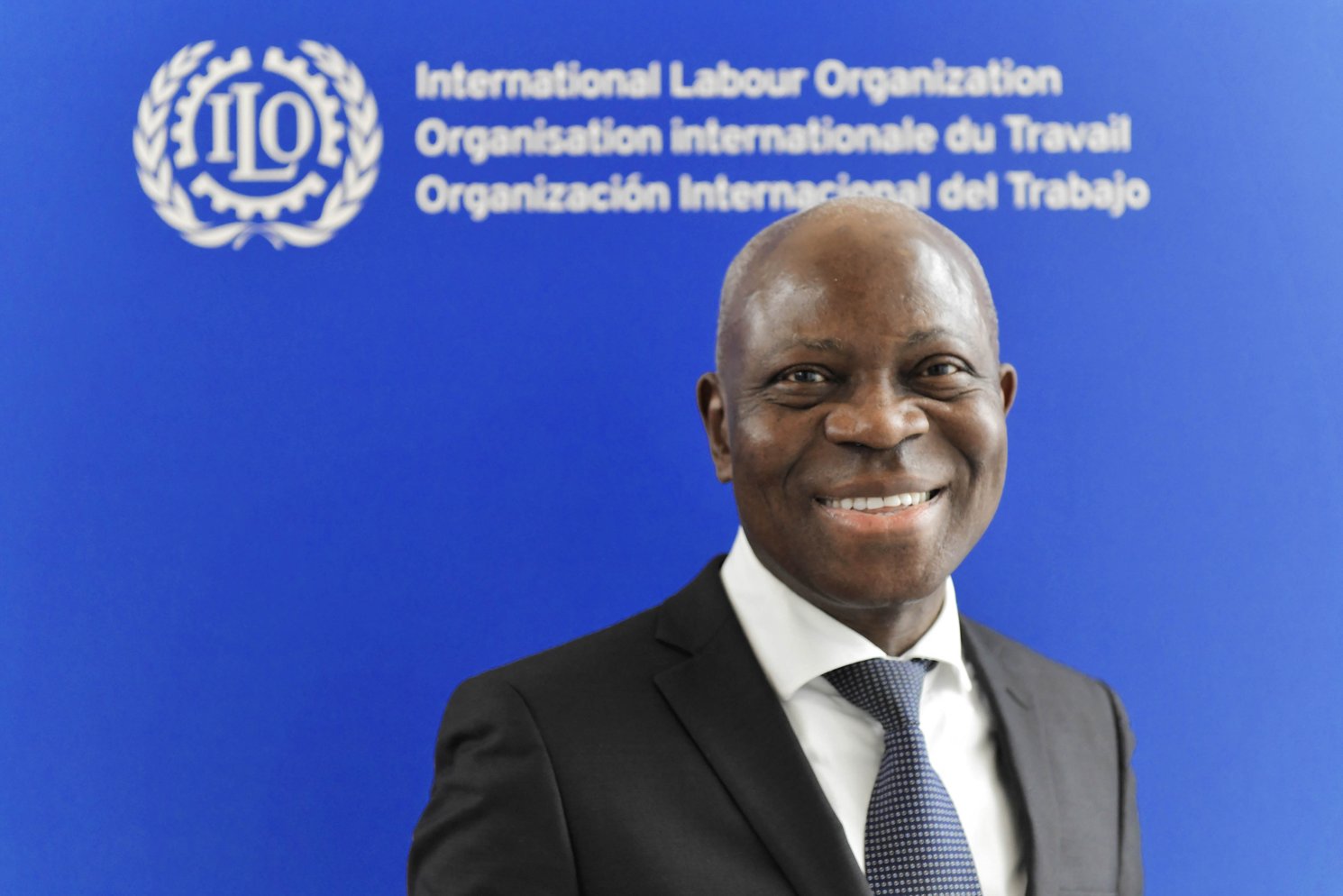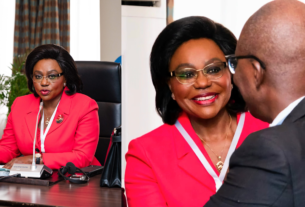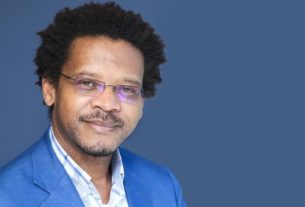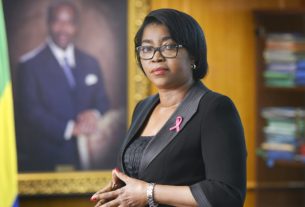Gilbert Houngbo was elected director-general of the International Labor Organization (ILO) on March 25 in Geneva by the ILO’s Governing Body, which is made up of representatives of governments, workers and employers. He will take office on October 1 for a five-year term and will be the 11th director general of the ILO and the first African to hold the post. The current Director-General, Guy Ryder of the United Kingdom, has held the position since 2012.
The ILO Governing Body is composed of 56 titular members (28 governments, 14 employers and 14 workers) and 66 alternate members (28 governments, 19 employers and 19 workers). Employer and worker members are elected in their individual capacities. The ILO is the oldest specialized agency of the United Nations. It was founded in 1919 with a mandate to promote decent work for all. It has 187 member states.
For his election as head of the ILO, Gilbert Houngbo faced five candidates: Kang Kyung-wha (Republic of Korea), former Minister of Foreign Affairs of the Republic of Korea, Deputy Director-General of International Organizations for Korea and United Nations Deputy High Commissioner for Human Rights; Mthunzi Mdwaba (South Africa), former Vice-Chairman of the Employers’ side of the ILO Governing Body and Vice-Chairman of the ILO, International Organization of Employers; Muriel Pénicaud (France), currently Ambassador and Permanent Representative of France to the Organisation for Economic Co-operation and Development (OECD), and former Minister of Labour of France; and Greg Vines (Australia), currently ILO Deputy Director-General for Management and Reform, and former Minister (Labour), Permanent Mission of Australia to the United Nations in Geneva and President of the ILO Governing Body.

A former Prime Minister of Togo, Gilbert F. Houngbo was ILO Deputy Director-General for Field Operations and Partnerships. Speaking after his election, he said, “Although my origins are African, my perspective is global. In an unfortunately divisive time, my commitment to being a unifying Director-General remains firm…. I will be nobody’s CEO and everybody’s CEO. Governments, employers and workers, from all regions of the world, can and should count on my full availability to represent and defend the views of all the tripartite constituents of the organization. I am committed to representing the voices of those who count on us at the ILO. I think of the four billion people in the world who have no access to social protection. I think of the more than 200 million women and men who face unemployment. The 160 million working children. The 1.6 billion people who work in the informal sector. The businesses, especially small and medium-sized enterprises, that face supply chain disruption or closure due to crises, including pandemic, climate change and armed conflict. I think of women and men who face discrimination, violence and harassment in the workplace and elsewhere. These are all expressions of unacceptable social injustice that we are morally, if not legally, obligated to address.”
The Natural Resource Governance Institute
Gilbert Houngbo is also the Chairman of the Board of the Natural Resource Governance Institute, an independent, non-profit organization based in New York dedicated to improving the governance of countries’ natural resources to promote sustainable and inclusive development. The Natural Resource Governance Institute (NRGI) is registered in several jurisdictions around the world, with agreements governing the relationships between the entities. The primary entity is NRGI, with Natural Resource Charter Limited (UK), NRGI-EU and NRGI Tanzania as affiliated entities.
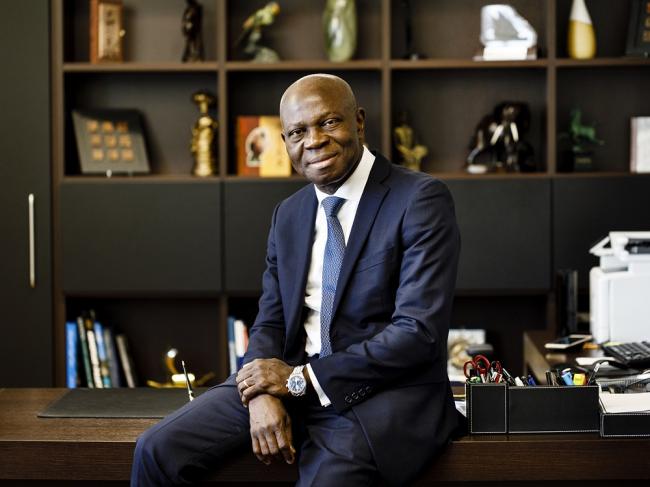
Gilbert Houngbo assumed the role of NRGI’s chairman of the board in March 2022, succeeding former Mexican president Ernesto Zedillo, who served as NRGI’s chairman of the board from 2013 to 2020. Smita Singh, an NRGI board member since 2006, became interim chair in 2020 and continues to serve as a board member after Gilbert Houngbo takes over as chair. “Following a rigorous global search, we are delighted and very privileged to welcome Gilbert as our president,” said Smita Singh, interim chair of the NRGI board.
Current President of IFAD
Gilbert Houngbo, is currently serving his second term as the sixth president of the International Fund for Agricultural Development (IFAD), an international financial and development institution of the United Nations whose mission is to eradicate hunger and poverty among extremely poor small-scale food producers. Appointed to the post on April 1, 2017,he was reappointed for a second term in February 2021. Gilbert Houngbo oversees responses to rural poverty and hunger, climate and environmental challenges, gender inequality and indigenous peoples’ concerns. He was Prime Minister of Togo from 2008 to 2012, during which time the country joined the Extractive Industries Transparency Initiative.
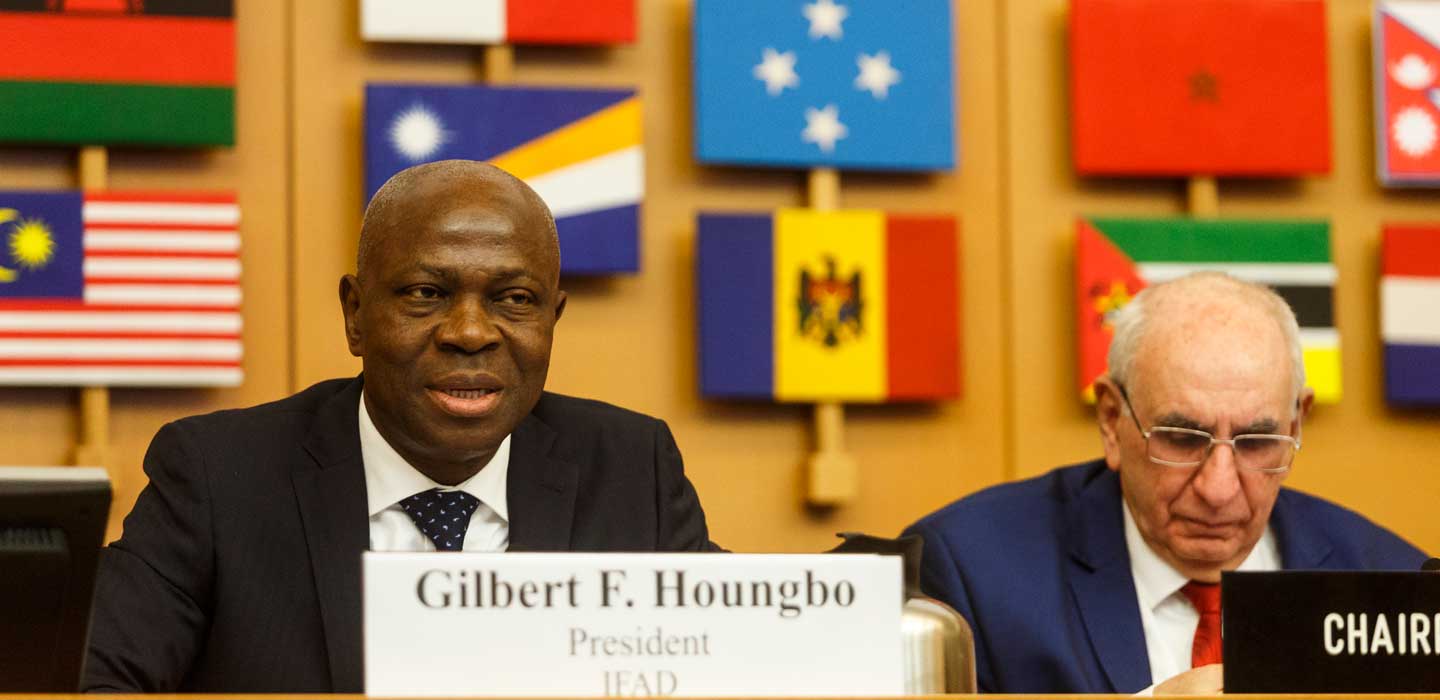
President of UN-Water
Gilbert Houngbo is also President of UN-Water, which coordinates the efforts of more than 30 UN entities and international organizations working on water and sanitation issues. He also helps shape the future of global food security and agriculture as a board member of the World Economic Forum’s (WEF) Food Systems Initiative and a board member of the International Center for Biosaline Agriculture (ICBA). As a founding member of the Generation Africa Ambassadors Group, Gilbert Houngbo collaborates with other leaders on the continent on ways to foster support for innovative young African entrepreneurs.
A successful international career
Prior to his appointment as President of IFAD, Gilbert Houngbo was Deputy Director-General of the International Labour Organization (ILO), where he led field operations in over 100 countries and managed bilateral and multilateral partnerships. From 2008 to 2012, he served as Prime Minister of the Republic of Togo, where, it is explained, he introduced economic and social reforms leading to poverty reduction.
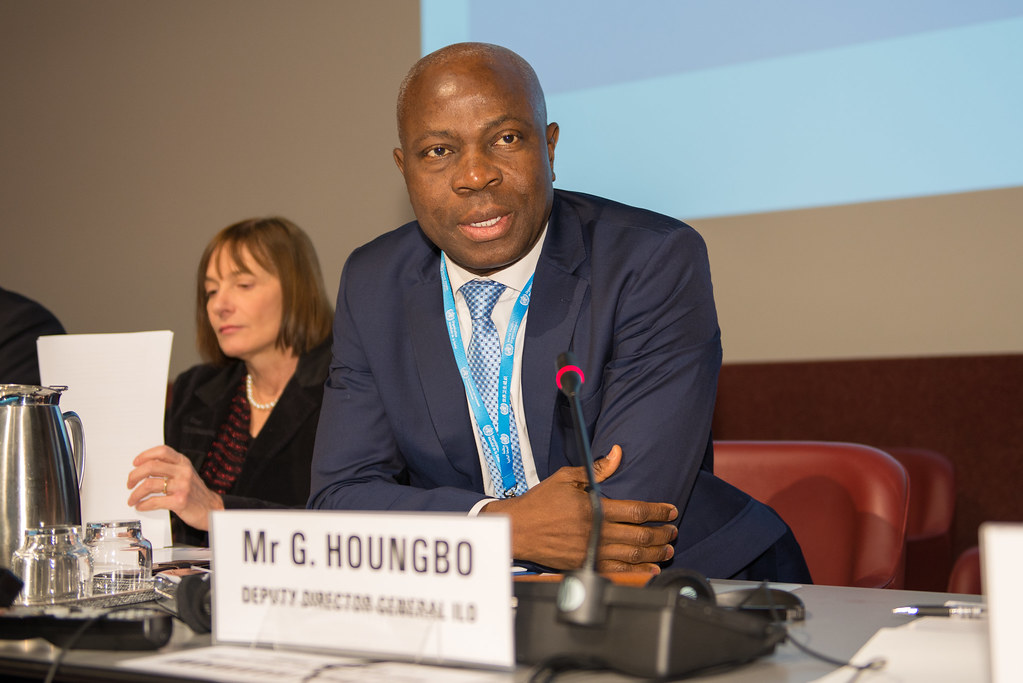
From 1996 to 2008, Gilbert Houngbo held several positions with the United Nations Development Programme (UNDP), including Director of Finance, Chief of Staff, Deputy Secretary-General and Regional Director for Africa. In addition, he has led poverty reduction programs in 45 countries in sub-Saharan Africa. Within the UNDP, Gilbert Houngbo has been involved in supporting the governments of resource-rich countries such as the Democratic Republic of Congo, Liberia and Sierra Leone in their negotiations with large private sector companies.
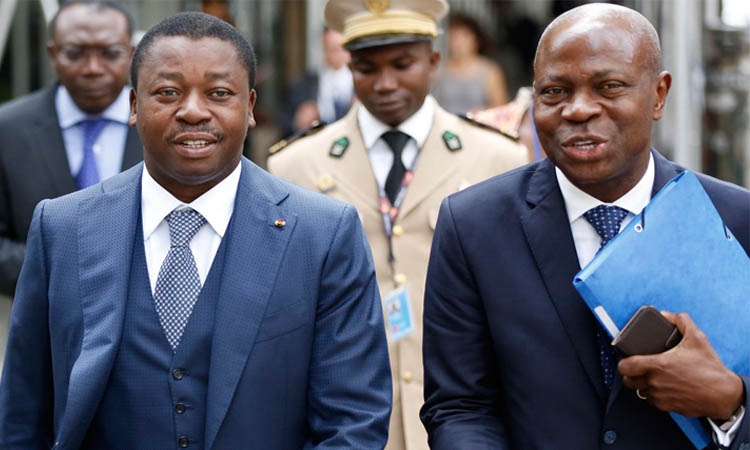
Prior to that, Gilbert Houngbo spent a decade in the private sector, including at Price Waterhouse in Canada, where he worked in auditing and financial advisory services.
Gilbert Houngbo holds a Master’s degree in Business Administration from the University of Lomé, Togo, and a Graduate Diploma in Accounting from the University of Quebec, Canada. He is also a member of the Canadian Institute of Chartered Professional Accountants.
